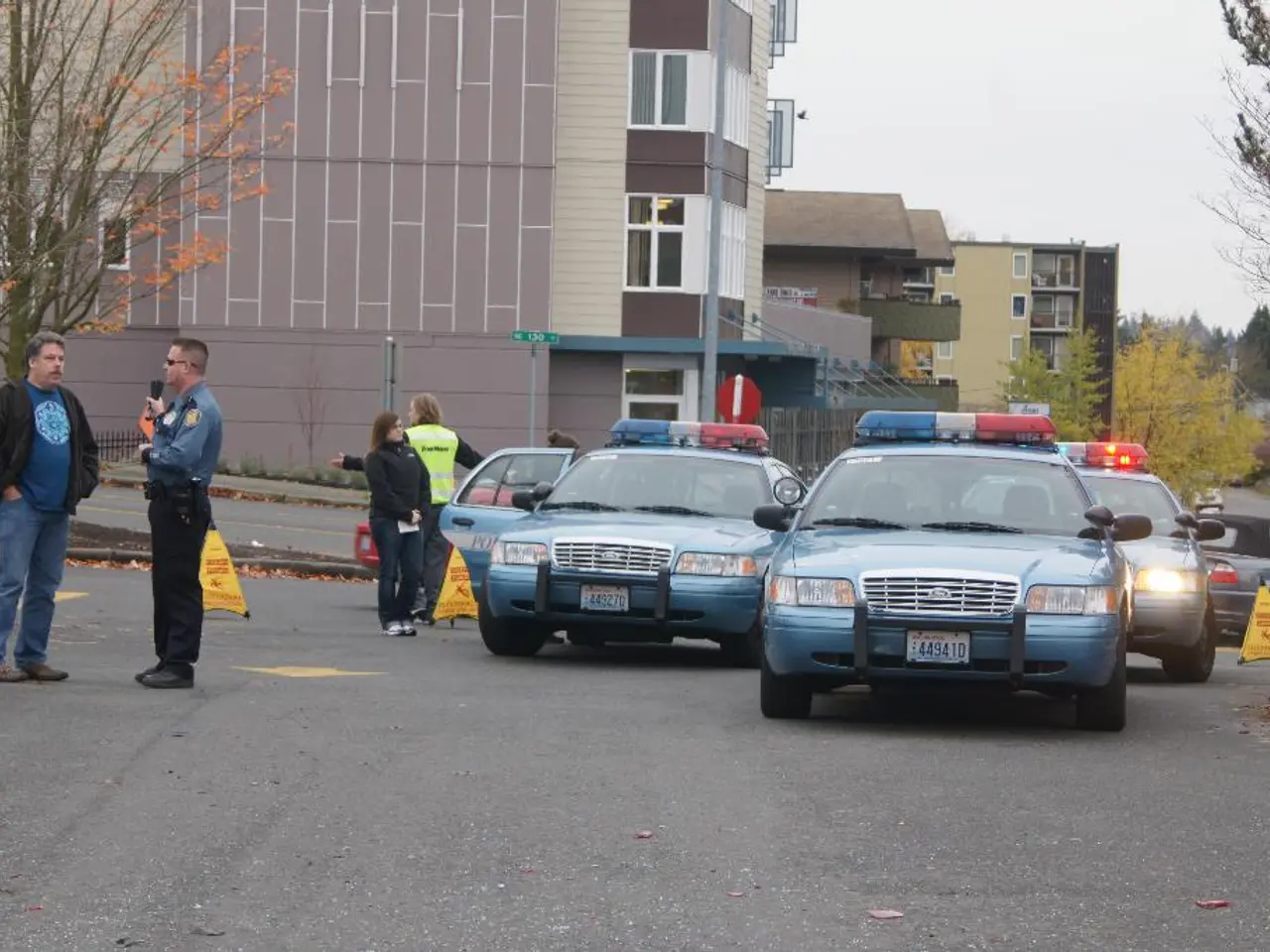Public Service DGB: Rising Violence Calls for Urgent Action
Escalating aggression towards public service workers - Escalating Aggression Towards Public Officials
The German Trade Union Confederation (DGB) is expressing grave concerns over a burgeoning issue—violence against employees in public service. State chairman Markus Schlimbach declared that the numbers are disconcertingly high and continue to ascend. Last year saw nearly 111,500 instances of violence against the police, emergency services, and fire department, marking a 4.9% increase from the previous year.
Sadly, the German Railway is not immune to this trend. A survey conducted by the Railway and Transport Union reveals that 82% of employees with customer contact have suffered verbal or physical attacks during their professional lives.
A Proactive Response is Needed
Schlimbach emphasizes that all incidents must be meticulously documented and pursued consistently. He reiterates that such acts of violence against employees in public service are not rare occurrences but pose a significant issue that demands immediate attention. Moreover, he urges better protection mechanisms for employees, including more staff and improved equipment.
On Monday, the Day of the Public Service was celebrated. In Saxony, home to around 239,200 employees, the majority of whom are civil servants and officials—comprising employees from schools, police, local authorities, ministries and authorities, as well as social security institutions—not to mention the Federal Employment Agency's over 5,000 employees at roughly 50 locations across the region.
Reduced Tolerance for Violence
With the escalating incidences of violence, it's crucial to focus on preventive measures and prompt action. Data from 2024 shows a 46% surge in far-right extremist crimes, with nearly 3,000 classified as violent crimes [1]. This growing threat places police officers at increased risk, as right-wing extremist violence often targets state representatives. Additionally, over 3,000 anti-Muslim attacks occurred—a 60% increase from the previous year—and these incidents heighten dangers for police and emergency responders.
The Federal Ministry of the Interior (BMI) is actively working to combat extremist incitement, populist misinformation, and foreign propaganda, strengthening democracy and security over Germany [3]. Measures include enhancing police training, ramping up monitoring and intelligence gathering, and improving community engagement.
Preventive strategies for the German Railway and firefighters involve better security protocols, rapid intervention teams, and coordination with law enforcement to safeguard employees from aggressive incidents during their duties. The government is also emphasizing the need for stronger legal frameworks to effectively prosecute extremist and violent offenders.
A Resolute Course Forward
It's evident that violence against public service employees is on the rise, particularly targeting police, firefighters, and German Railway personnel. The government, via the Federal Ministry of the Interior (BMI), is committed to addressing this issue through proactive measures and heightened security to protect affected public servants. While specific statistics for violence affecting fire departments and the German Railway specifically are less highlighted, the general rise in extremist violence suggests that these sectors may also be at risk. Further targeted measures will likely be enacted to ensure the safety of these critical infrastructure workers.
The Community policy initiatives within the German Trade Union Confederation (DGB) could prioritize vocational training programs for public service employees, focusing on de-escalation techniques and self-defense strategies to help reduce the potential threats they face.
The rising instances of general-news items such as crime-and-justice related incidences and far-right extremist activities underscore the importance of political involvement in drafting comprehensive community policies that address these issues head-on, providing a stronger support system and protecting public service employees, including those in the policing, fire department, and German Railway sectors.





